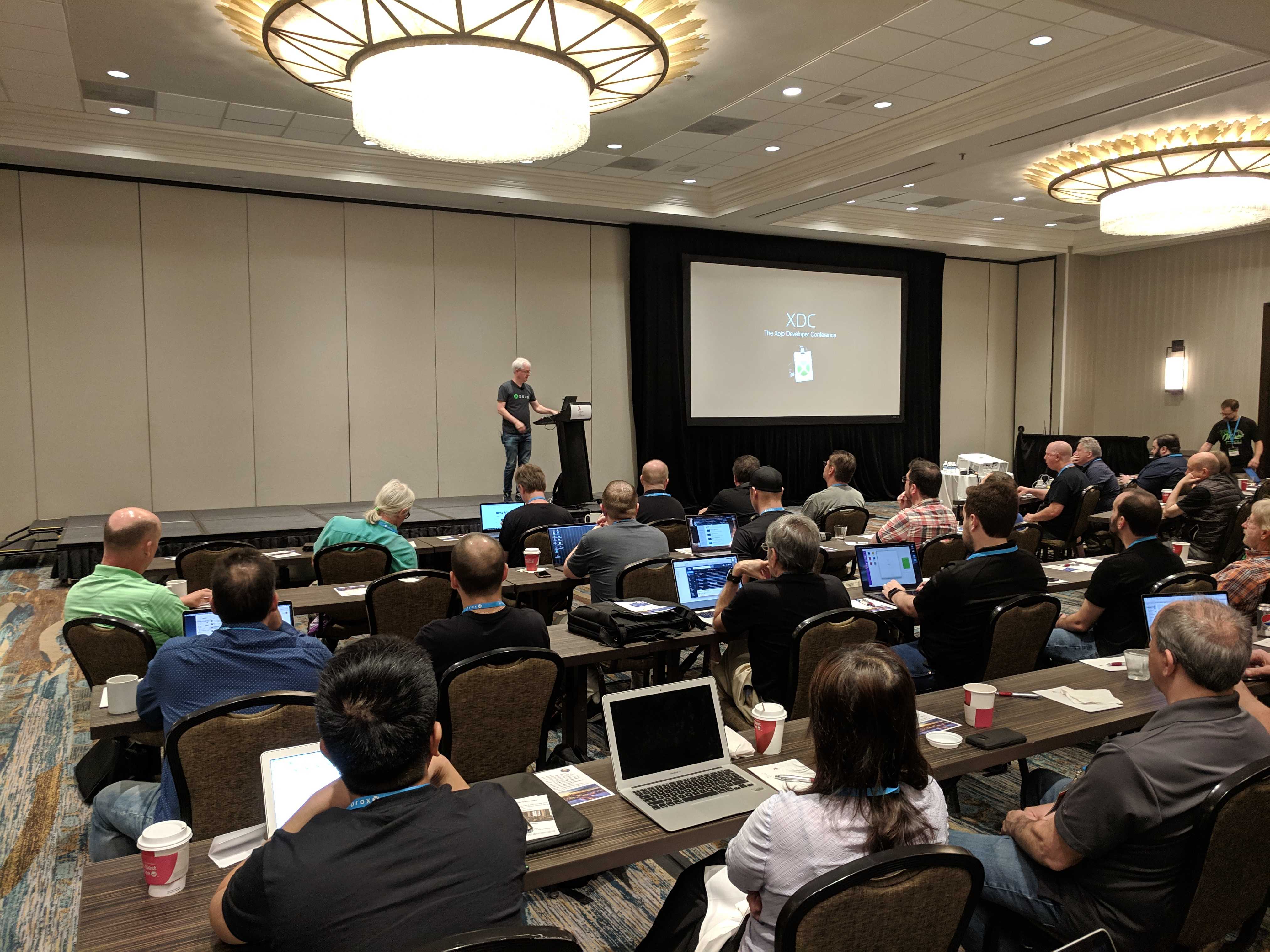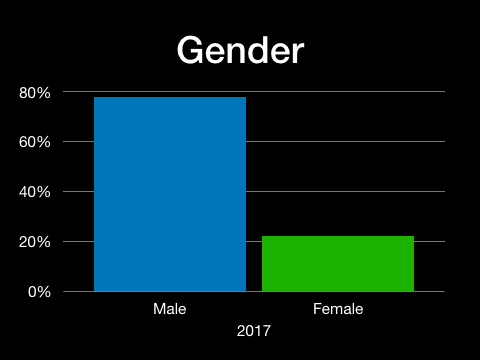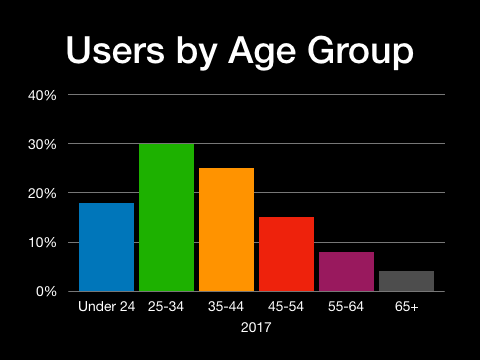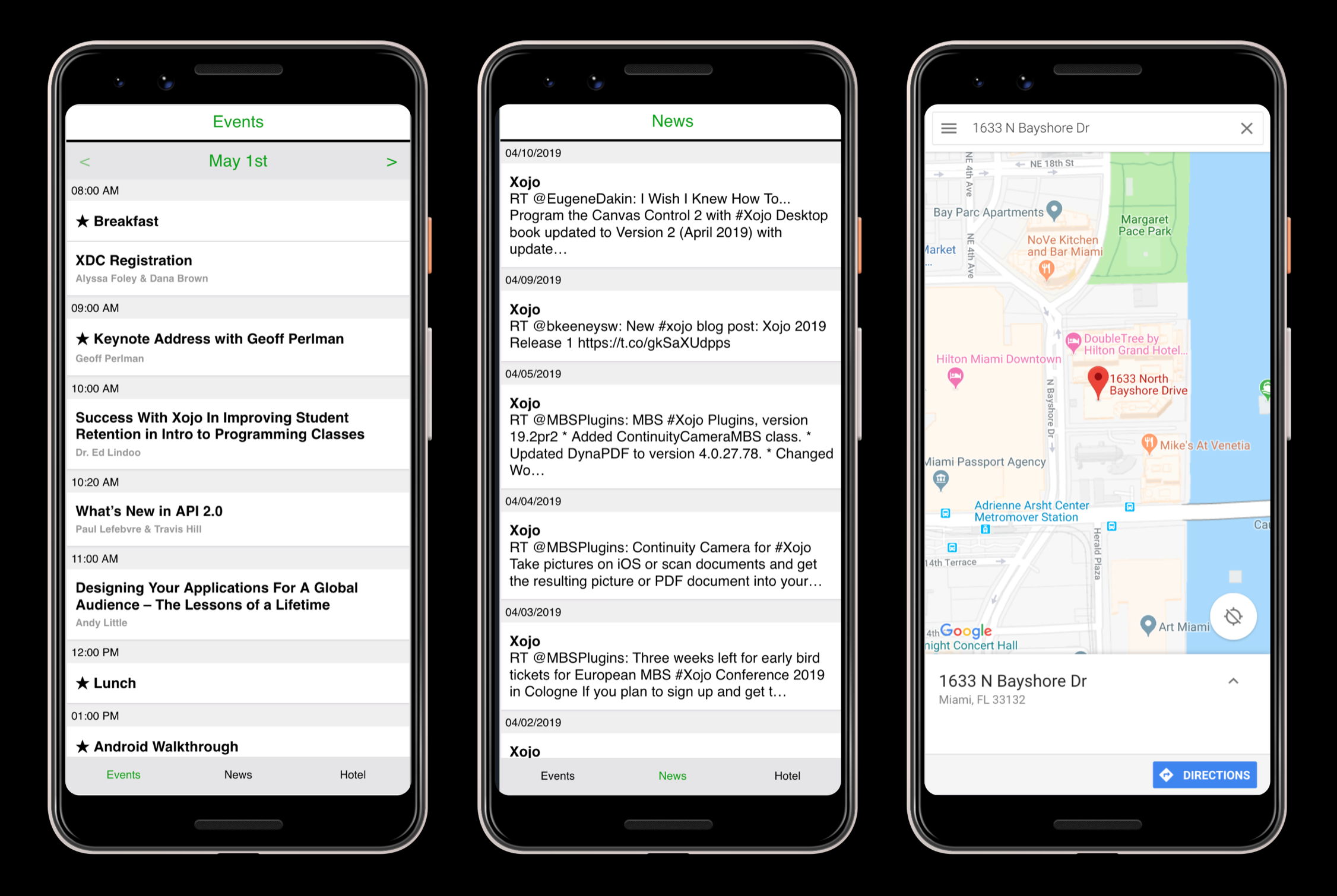Geoff just wrapped up the keynote here in sunny, windy Miami, Florida.

After a brief introduction welcoming attendees from 11 different countries, Geoff began the keynote by sharing some graphs showing how the Xojo community has been changing.
Along with a growing interest in Xojo, account creation is up 200%, we’ve seen a change in the demographics of our users. In 2017 only 22% of Xojo users were women. This year, that number has nearly doubled to 41%!

A few years ago, just under half of Xojo users were under 35. Now in 2019, 61% of our users are under 35.

This broader change is partially the result of current Xojo community members who evangelize Xojo on social media, blogs or simply in speaking with friends and colleagues. We know that word of mouth recommendations always carry more weight than any advertisement. Geoff took some time to recognize a few members of the Xojo community that have gone the extra mile to build this community. Hal Gumbert and Tim Dietrich, both Xojo developers from the FileMaker community, regularly blog and share on social media their experiences with Xojo. Also thanks is due to Thomas Templemann whose rally cry on the forum encouraged users to review Xojo on slant.co. What may appear to be small single actions all add up to make a difference. The stronger our community is, the better Xojo will be.
Next Geoff announced the winners of the Xojo Design Awards 2019, learn more more about these stellar examples of what has been done with Xojo!
Our team has been very busy over the last 12 months. Xojo has introduced 48 new features, made 75 changes and fixed 465 bugs. To name a few: we added Dark Mode for macOS, native labels in Windows, iOS Table pull to refresh and variable row heights, better text rendering on Windows, URLConnection in API 2.0, incremental compilation for 64-bit and ARM and significantly sped up the layout editor.
But we’ve also spent a lot of time working on some big, multiyear features so let’s take a look at where Xojo is going.
Xojo Cloud
Xojo Cloud is moving to 64-bit because the modern Linux distros are all 64-bit. Going forward, Named Hosts will allow you to point a domain at a specific app. We will be switching from CGIs to stand-alone apps to utilize modern web protocols and we are putting a load balancer in front of each app so you can easily handle more concurrent users.
Interops
If you don’t already know, Interops are basically a better way to make calls into OS APIs than declares. Interops require less code, remove the need to convert data between OS and Xojo types and are far easier to write. A quick example:
These four lines of declares connect to the EventStore database on your iOS device:

Just to connect to the eventstore, you’re dealing with a lot of very unfriendly stuff. However, with Interops this is reduced to one simple line that is friendly Xojo code:
Interops are already a real thing. We are using them internally in the iOS XDC app for both for calendar events and local notifications as well. We are also using them to build the Android framework.
IDE Update
We’ve been doing a lot of work behind the scenes on IDE improvements. You’ve seen some of this in 2019r1 with the layout editor.
With that completed, we’ve now reached the point where the new Home screen and improved workflow are coming soon.
API 2.0
API 2.0, is a set of APIs that will replace many of the existing ones, they will provide better consistency in naming, offsets and error handling. In some cases, we are taking the opportunity to modernize the implementation as well. You already saw this with URLConnection introduced in 2018r4. URLConnection replaced the old HTTPSocket that used a library that had to be updated. URLConnnection uses the underlying OSs’ library, so as those OSs get updated in order to provide better HTTP connections, your apps will automatically benefit. To name a couple more, API 2.0 supports Bezier Curves for all platforms, not just iOS. And the Date class has all the features we added to xojo.core.date, including: Locale support, DateInterval support and TimeZone support.
In most cases the APIs have not changed and not everything will be replaced. Those that are replaced will remain for many years so you don’t need to worry about rewriting your code right away. This change has gone faster than expected (yay, it does happen!) and we plan to be in beta after just a few more updates are made.
Web Framework 2.0
Last year we talked a lot about the design of Web 2.0, this year Geoff focused on implementation and the great progress made so far. As a way of testing out Web Framework 2.0, we decided to port something to the web using it. Since so many have asked for it over the years, we’re working on a web version of Feedback. It’s in the early stages and Greg will be demonstrating the web version in his XDC session. While there’s still more implementation to do, the fact that we are using it for internally tells you how far we have come. Once the implementation is complete, we will begin beta testing.
Android
As you may remember we showed you a Hello World on Android back in 2018. Since then we’ve got IDE integration, apps running on simulator and apps running on actual hardware. We’re also building Android apps internally. In fact, we have put together an Android version of the XDC app! You can go to the Play Store and download it right now. This is a simple app, basically the HTMLViewer. However, the app is native and was built the same way you will be building native apps in Xojo. Travis will show you more controls and have lots of details and demos in his XDC session.

So what’s left before Android is in your hands? In this as well, a lot of the “heavy lifting” has been done, we need to finish implementing the framework and port the debugger and then we will begin pre-release testing Xojo Android.
As you can see, Xojo has made significant progress towards these many large, multiyear projects. An additional note, currently work on Plugins in Xojo is paused to allow us to focus on Android. We’ll do our best to keep you updated via Twitter and Facebook throughout the conference. Please use hashtag #XDC2019 online to search or share your own thoughts. Even if you aren’t here, we’ll do our best to reduce the Xojo FOMO! The XDC Video set is now available for sale.
Speaking of great conferences, the MBS Software conference will be in Cologne, Germany on October 24th and 25th of this year. There are already 40 people coming from 10 different countries, including Geoff Perlman!

